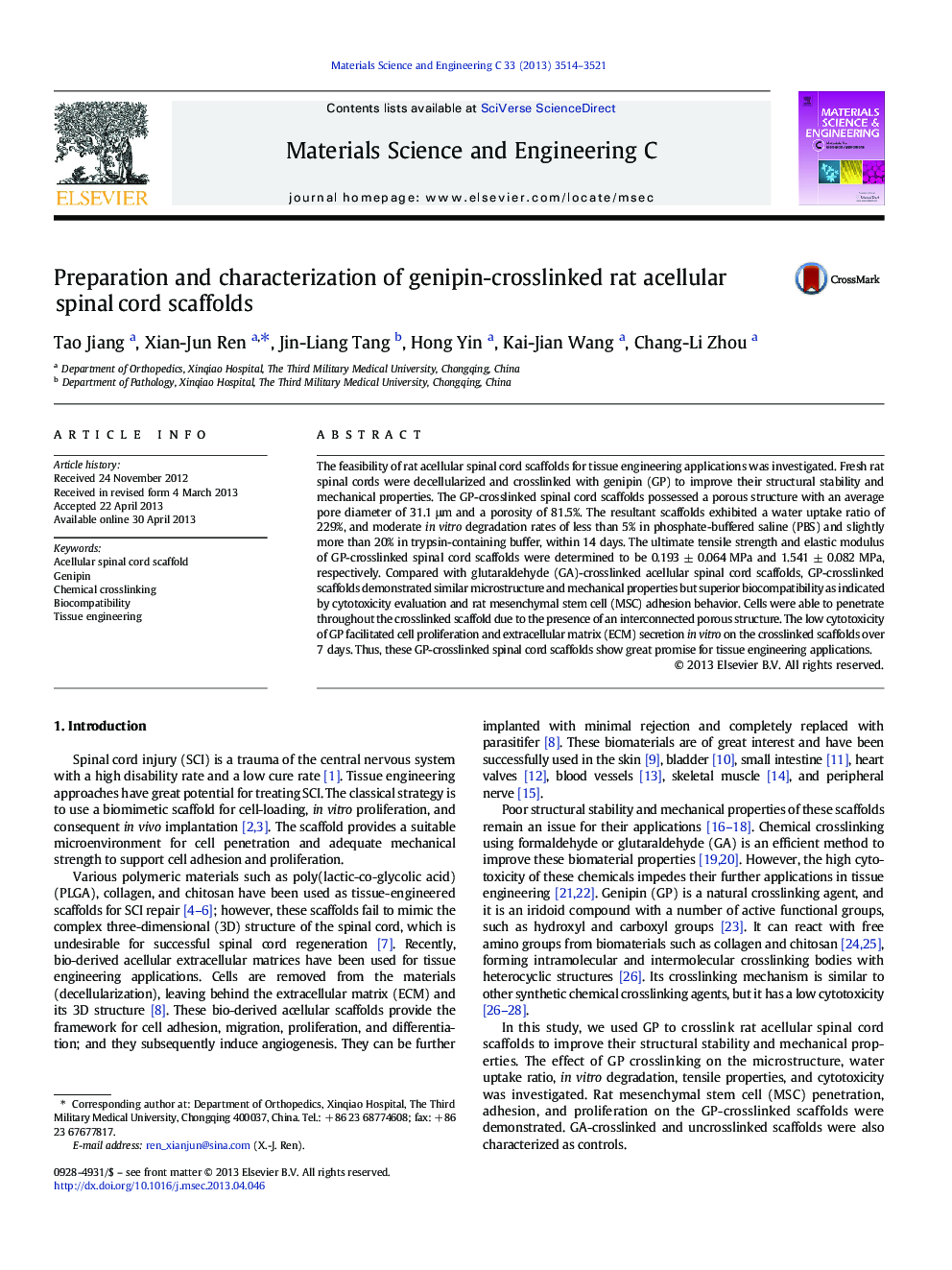| کد مقاله | کد نشریه | سال انتشار | مقاله انگلیسی | نسخه تمام متن |
|---|---|---|---|---|
| 1429205 | 987165 | 2013 | 8 صفحه PDF | دانلود رایگان |

• We prepared a modified acellular spinal cord scaffold by crosslinking with genipin.
• Genipin-crosslinked scaffold possessed a good 3-dimension porous structure.
• Structural stability and mechanical property of scaffold were enhanced by genipin-crosslinking.
• Genipin-crosslinked scaffold demonstrated superior biocompatibility.
• Genipin-crosslinked scaffold show great promise for tissue engineering applications.
The feasibility of rat acellular spinal cord scaffolds for tissue engineering applications was investigated. Fresh rat spinal cords were decellularized and crosslinked with genipin (GP) to improve their structural stability and mechanical properties. The GP-crosslinked spinal cord scaffolds possessed a porous structure with an average pore diameter of 31.1 μm and a porosity of 81.5%. The resultant scaffolds exhibited a water uptake ratio of 229%, and moderate in vitro degradation rates of less than 5% in phosphate-buffered saline (PBS) and slightly more than 20% in trypsin-containing buffer, within 14 days. The ultimate tensile strength and elastic modulus of GP-crosslinked spinal cord scaffolds were determined to be 0.193 ± 0.064 MPa and 1.541 ± 0.082 MPa, respectively. Compared with glutaraldehyde (GA)-crosslinked acellular spinal cord scaffolds, GP-crosslinked scaffolds demonstrated similar microstructure and mechanical properties but superior biocompatibility as indicated by cytotoxicity evaluation and rat mesenchymal stem cell (MSC) adhesion behavior. Cells were able to penetrate throughout the crosslinked scaffold due to the presence of an interconnected porous structure. The low cytotoxicity of GP facilitated cell proliferation and extracellular matrix (ECM) secretion in vitro on the crosslinked scaffolds over 7 days. Thus, these GP-crosslinked spinal cord scaffolds show great promise for tissue engineering applications.
Journal: Materials Science and Engineering: C - Volume 33, Issue 6, 1 August 2013, Pages 3514–3521